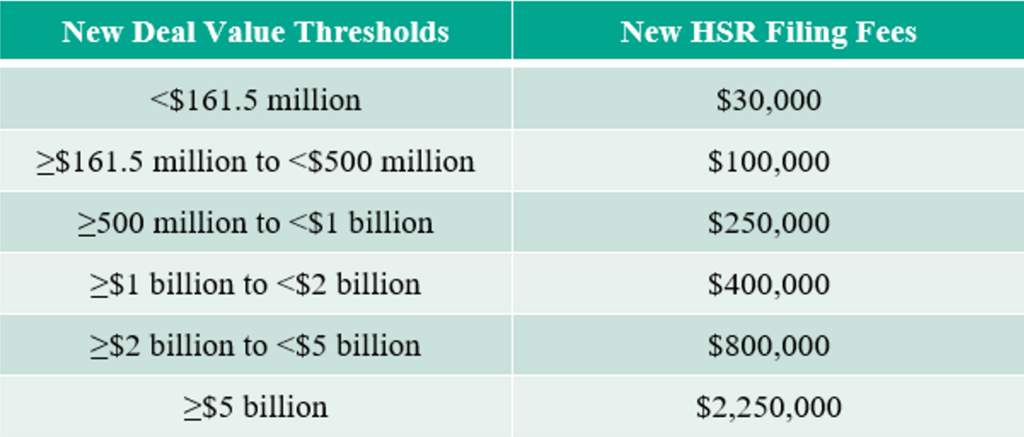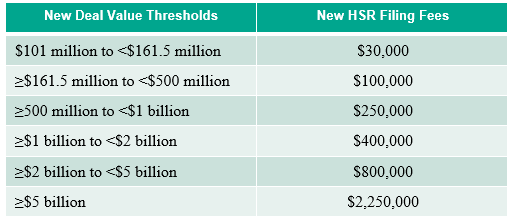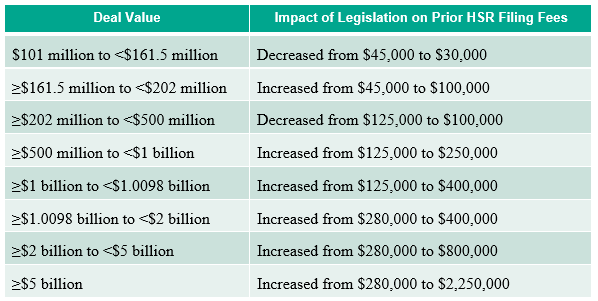The American Bar Association’s Antitrust Law Section recently held its annual Spring Meeting in Washington, DC, featuring updates from federal, state, and international antitrust enforcers and in-depth commentary on leading antitrust issues facing the business community today. This post recaps key takeaways from the first portion of the Spring Meeting.
CIVIL ENFORCEMENT AND MERGER REVIEW: US DEPARTMENT OF JUSTICE (DOJ) PRIORITIES
- Aggressive Enforcement by Any Other Name: DOJ Antitrust Division Deputy Assistant Attorney General Hetal Doshi characterized DOJ’s enforcement posture as “not aggressive enforcement, just enforcement,” but nevertheless opined that the Department’s past practice of erring on the side of under-enforcement has “ill-served” the public.
- Whole-of-Government Means Whole-of-Government: The Division’s Deputy Assistant Attorneys General Maggie Goodlander and Michael Kades highlighted that various federal statutes other than the antitrust laws confer the power to act to preserve competition. They emphasized DOJ’s intent to pursue sweeping enforcement priorities to execute President Biden’s recent executive order calling for a whole-of-government approach to protecting competition, including by working in conjunction with other federal agencies like the Departments of Defense, Transportation, and Agriculture.
- Enforcement Priorities Include Technical Violations of HSR Act, Spoliation, Gun-Jumping: Deputy Assistant Attorney General Goodlander emphasized DOJ’s intent to pursue vigorously violations of the HSR Act, including failures to make required premerger notification filings, failures to provide all Item 4 documents, and “gun-jumping” caused by concerted action prior to the satisfaction of the HSR Act’s waiting period. Goodlander also commented on DOJ’s intent to scrutinize merging parties’ conduct during the due diligence phase to investigate whether parties are using due diligence to conceal and accomplish anticompetitive conduct. Other DOJ officials further emphasized that DOJ and the Federal Trade Commission (FTC) are working to ensure that the agencies’ investigations are not harmed by the use of third-party ephemeral communication platforms and to penalize spoliation of evidence contained in such messaging applications.
- Hostility Toward Freely Granted Divestitures in Merger Investigations: Deputy Assistant Attorneys General Doshi and Andrew Forman conveyed the high bar merging parties face when they offer structural or behavioral remedies, including divestitures, to resolve or head off a DOJ challenge to a merger or acquisition. Doshi and Forman pointed to instances where divestitures and/or carveouts offered in merger transactions have failed and “the American people bear the risk” of anticompetitive harms and asserted that “the idea that a divestiture can cure the feared antitrust issues can’t rest on our hopes of what might happen in the future after the deal and divestiture closes.”
- Consent Decrees Face Much Stricter Scrutiny: Deputy Assistant Attorneys General Forman, Goodlander, and Kades emphasized the “exacting standard” that must be applied when DOJ is considering entering into a consent decree to resolve a merger challenge. According to the Department officials, the antitrust laws prohibit mergers that may substantially lessen competition, which means that for a consent decree to resolve antitrust concerns, it must eliminate the possibility that a merger could cause harm—an “extremely high bar.”
- Updated Merger Guidelines to Focus on Relevant [...]
Continue Reading
read more

 Subscribe
Subscribe



